Search Images
Browse Content (p. 1187)
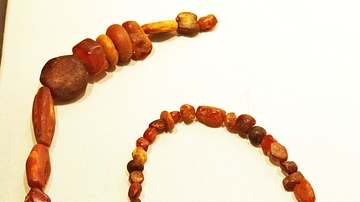
Image
Merovingian Amber Necklace
This necklace made from amber was found in a Merovingian tomb located in Sint-Gillis-bij-Dendermonde, Belgium. It dates from the second half of the 5th century to the early 6th century CE. (Musée du Cinquantenaire, Brussels)
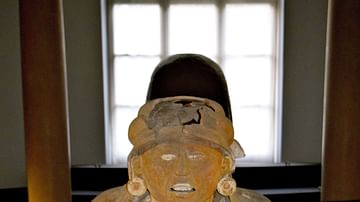
Image
Veracruz Culture Statue of Cihuacoatl
Although Cihuacoatl was later known in Aztec mythology as the "snake woman," she was also a fertility goddess and a goddess of motherhood. This statue comes from the Veracruz culture, which lived along the Gulf Coast in what is present-day...
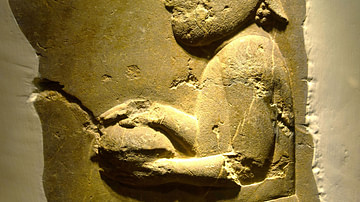
Image
Relief of a Median Man
This relief from Persepolis, Iran shows a Median man climbing a staircase. Experts are quite sure what he's holding in his hands, but it might a stone or a shield. This relief is made from gray limestone and dates from the 5th-4th century...
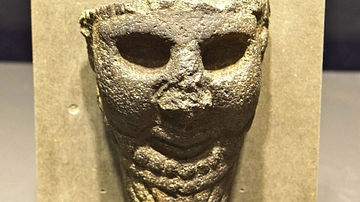
Image
Architectural Fragment from Ancient Syria
This fragment made from basalt was unearthed at the important archaeological site of Gozan (Tell Halaf), which is located in northern Syria. It dates from the 10th-9th century BCE. (Musée du Cinquantenaire, Brussels)
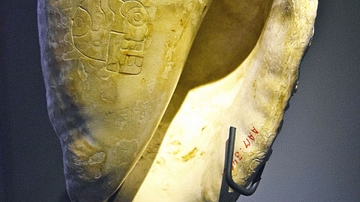
Image
Aztec Conch Shell Trumpet (Tecciztli)
This Aztec conch shell trumpet or "Tecciztli" dates from the Post-Classic era in Aztec history (1325-1521 CE). It was used in rituals, festivals, and religious processions. (Musée du Cinquantenaire, Brussels)
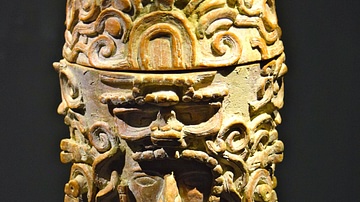
Image
Classical Maya Incense Container
This painted incense container is made from cut stone and dates from c. 600-900 CE. Maya artisans created it in what is present-day Guatemala during the Classical era. (Musée du Cinquantenaire, Brussels)
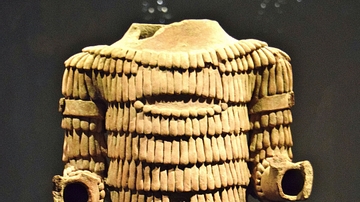
Image
Headless Mayan Divinity or Prest
This statue was made from cut stone during the Classical era in Mayan history (250-900 CE). It depicts either a Mayan god or goddess or perhaps even a priest. It was made in the Yucatán Peninsula of Mexico. (Musée du Cinquantenaire, Brussels...
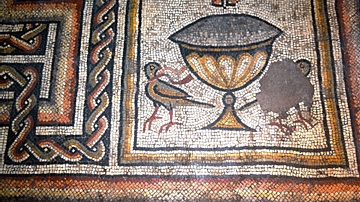
Image
Mosaic Fragment from Apamea, Syria
This fragment of a mosaic comes from an ancient cathedral that was once located in Apamea, Syria. Apamea, located on the right bank of the Orontes River, was an ancient Greek, Roman, and Byzantine city. This mosaic was made c. 533 CE and...
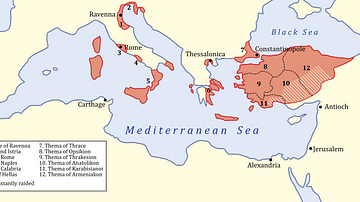
Image
Byzantine Empire, 717 CE
A map of the Byzantine empire and its themes and provinces in 717 CE.
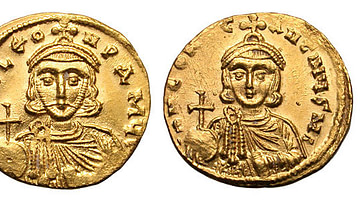
Image
Leo III & Constantine V
A gold solidus coin depicting Constantine V, emperor of the Byzantine empire between 741 and 775 CE (right) and Leo III (r. 685-741 CE)